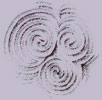Wessex Culture?
'Revolution' or late Beaker 'Evolution'?
Defining changes in the early 2nd Millennium BC
 |
|
 |
This event has now passed.
Friday 16th – Sunday 18th April 2010, The Prehistoric Society, School of Conservation Sciences, Bournemouth University, Bournemouth, Dorset. The conference will be held at Bournemouth House, on the Lansdowne Campus, near the centre of town, and near the railway station.
A major conference organised by the Prehistoric Society and Bournemouth University Centre for Archaeology, Anthropology and Heritage
This conference will address a problem that archaeologists of the Early Bronze Age have faced since William Cunnington and Sir Richard Colt Hoare first dug into the barrows of Salisbury Plain. What happened to Beaker burial practice in Southern Britain between the late Third and early Second Millennium BC? In cemeteries across Wessex burial practices changed from inhumation to cremation burial in a relatively short time. This change was also accompanied by changes in barrow form, agricultural patterns, ceremonial monuments and artefacts - many similar to artefacts on the Continent.
Archaeologists have struggled to characterise these different practices. Recent research has now shed doubt on the new artefacts as a diagnostic for change. This has led some to see the change as an evolution from the Beaker phenomenon – yet other changes were so pronounced as to be seen as revolution.
Conference will pool knowledge from archaeologists working with early second millennium artefacts, burials and other evidence from Britain and the Continent to better understand the dynamics of this change termed the ‘Wessex Culture’.
Where available, abstracts of presentations are available in PDF format.
Programme
Friday 16th April
1730 Registration and wine reception - Introduction from Andrew Martin
1830 Keynote Introduction: Stuart Needham
Why Wessex? (PDF - 228kb)
1930 Retire to conference bar
Saturday 17th April
0900 Registration
1000 Welcome: Prof. Tim Darvill
1010 Introduction, Prehistoric Society
Session 1: The Wessex Culture: Concepts and Objects
1035 Paul Garwood
'Elite' funerals, monuments and landscapes in the 2nd millennium BC: Wessex graves in long-term perspective (PDF - 104kb)
1105 Tea/coffee
1130 John Hunter
Ritual and Early Bronze Age Gravegoods (PDF - 196kb)
1200 Ann Woodward
Does the Wessex Culture exist? (PDF - 196kb)
1230 Discussion (Alison Sheridan)
1300 Lunch
Session 2: Changes in the Landscape
1400 Jo Appleby & Andrew Martin
Beyond Fashion: Characterising the shift in cremation in Early Bronze Age Wessex (PDF - 208kb)
1430 John Gale
Changing focus and identity in Early Bronze Age Dorset (PDF 10.4kb)
1500 Tea/coffee
1530 Mike Allen
Did the farming economy generate the Wessex Culture wealth; changes in environment and agriculture (PDF -10.7kb)
1600 Jan Harding
Henges and ceremonial monuments (PDF - 216kb)
1630 Discussion (Andrew Lawson)
1715 Retire to conference bar
Sunday 18th April
0900 Registration and posters
Session 3: Wessex and the Wider World
0930 Jodie Lewis and David Mullin
West of Wessex but only just: barrow construction on the Mendip Hills, Somerset (PDF - 260kb)
1000 Alison Sheridan
Perspectives from beyond Wessex (PDF - 140kb)
1030 Ros Cleal
The poor relation? Avebury at the time of the Wessex Culture (PDF 9.56kb)
1100 Tea/coffee
1130 Jonathan Last
The rise of the round barrow
1200 Anthony Harding
Long distance travel and trade in the Bronze Age: the Wessex connection (PDF -240kb)
1230 Discussion (Stuart Needham)
1300 Lunch
Session 4: Metallurgy, Monuments and Society
1400 Martyn Barber & Helen Wickstead
Metallurgy and Society (PDF - 220kb)
1430 Nick Thorpe
The Age of warriors? Beaker to Wessex Culture warfare and violence (PDF - 200kb)
1500 Sabine Gerloff
The locations and chronology of European artefact links abroad (PDF - 240kb)
1530
Discussion (Brendan O’Connor)
1600 Final Conference Discussion (Andrew Martin)
1615-30 Anticipated close of conference.
